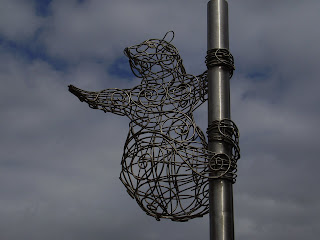
Mixed feelings as I read Transgressions, the new Bloodaxe selected Jack Gilbert. Look him up on amazon and you’ll find encomia aplenty from readers who see him as a steely incorruptible, foraging for scraps in the career waste land outside the world of MFAs and creative writing programmes. And there is something heroic about his decades-long insistence on writing the same poem over and over again. But if he does have to write it over and over, it may be because of its failure, on some level, to get him anywhere. Not that he’d complain about that either, I sense. There’s something heroic too in his devotion to the guillotine-like finality of his endstopped lines, and that’s what his poems tend to be: endstops that want to go on but know the best they can do is cradle their dead ends a little longer before handing them over to the poetry mortician:
Grief makes the heart
apparent as much as sudden happiness can. (‘Harm and Boon in the Meetings’)
The heart in its plenty hammered
by rain and need, by the weight of what momentarily is. (‘Steel Guitars’)
All of it a blessing. The being there. Being alive then.
Like a giant bell ringing long after you can’t hear it. (‘Burma’)
… down where a woman’s heart is holding its breath,
where something very far away in that body
is becoming something we don’t have a name for.
(‘Happening Apart from What’s Happening Around It’)
Song answering song. Gone and gone.
Gone somewhere. Gone nowhere. (‘Trying to Write Poetry’)
‘When it is a case of human intercourse’, Beckett wrote in his book on Proust, ‘we are faced by the problem of an object whose mobility is not merely a function of the subject’s, but independent and personal: two separate and immanent dynamisms related by no system of synchronisation’. Even lost to him though, Gilbert’s female objects are synchronized to a fault with his elegiac occasions. This could be the basis for a feminist rap-sheet, but for me it had the effect of deflating (detumescing) a lot of the poems’ erotic potential. The female figures aren’t allowed sufficient mobility and elusiveness, not enough seductive anamorphosis and evanescence. In the wrong hands, there is no muse figure as hopelessly, leadenly there all the time as one the poet has lost.
There are, by my count, three principal women who hang around his poems, which offers Gilbert readers the chance to play muse bingo when, as occasionally happens, he names all three in the same poem. It reminds me of my Gallimard French edition of Montale, which helpfully sources each poem in the notes to whichever girlfriend/muse/floozy had been its occasion.
On a separate note, I think ‘heart’ is my least favourite word in contemporary poetry. Anyone who uses it should be made do a round-trip of all major bodily organs, not missing the gall bladder, spleen and pancreas, before being allowed use it again.
And yet many of Gilbert’s poems move me very much indeed, even the ones that annoy me. ‘I believe Icarus was not failing as he fell, /just coming to the end of his triumph’, he writes in ‘Failing and Flying’. We all have our own failing to do, human and aesthetic, and no one can do it for us. As he writes in ‘In Dispraise of Poetry’ about the Siamese courtiers cursed with by the emperor’s gift of a white elephant which would then ruin them, ‘It appears the gift could not be refused.’












































